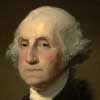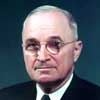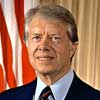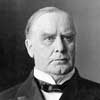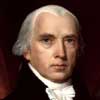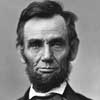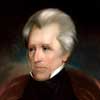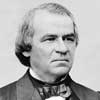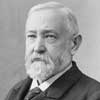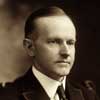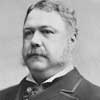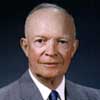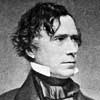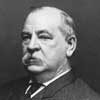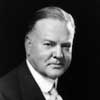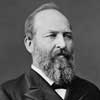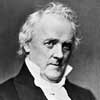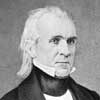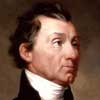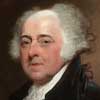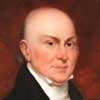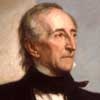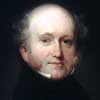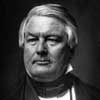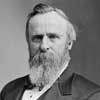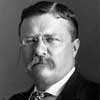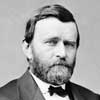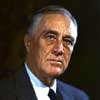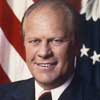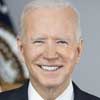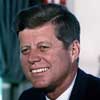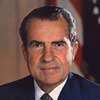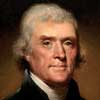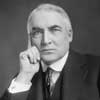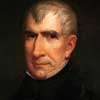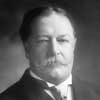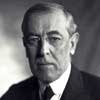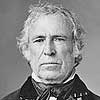George Washington, the first President of the United States (1789-1797), was a key figure in the American Revolutionary War and a Founding Father. Born on February 22, 1732, in Westmoreland County, Virginia, he led the Continental Army to victory against the British, solidifying his status as a military hero. Known for his integrity and humility, Washington presided over the Constitutional Convention in 1787, contributing to the drafting of the U.S. Constitution. His leadership and commitment to a peaceful transfer of power set important precedents for the nation. Washington's legacy endures as a symbol of American independence and unity.
Harry S. Truman, the thirty-third President of the United States (1945-1953), born on May 8, 1884, in Lamar, Missouri, assumed office following Franklin D. Roosevelt's death. A Democrat, Truman's presidency was marked by key decisions in the final months of World War II, including the use of atomic bombs on Hiroshima and Nagasaki. Truman initiated the Marshall Plan to aid postwar Europe and implemented the Truman Doctrine, defining U.S. Cold War policy. He also desegregated the military and recognized the State of Israel. Despite initial challenges, Truman's leadership and integrity earned him retrospective acclaim. He left office in 1953.
Jimmy Carter, the thirty-ninth President of the United States (1977-1981), born on October 1, 1924, in Plains, Georgia, was a Democrat. Carter's presidency prioritized human rights, energy conservation, and the Camp David Accords, fostering peace between Egypt and Israel. Despite diplomatic achievements, Carter faced challenges, including the Iran Hostage Crisis. His efforts to combat inflation and the energy crisis were complicated by economic struggles. Carter's presidency ended with an unsuccessful bid for re-election in 1980. Post-presidency, he became known for humanitarian work. Carter's commitment to diplomacy and human rights continues to shape his legacy.
William McKinley, the twenty-fifth President of the United States (1897-1901), born on January 29, 1843, in Niles, Ohio, was a Republican leader during a period of economic growth. His presidency saw the annexation of Hawaii, victory in the Spanish-American War, and the acquisition of territories, including Puerto Rico and the Philippines. McKinley's support for protective tariffs and the Gold Standard defined his economic policies. Tragically, he was assassinated in 1901 by anarchist Leon Czolgosz, leading to the presidency of Theodore Roosevelt. McKinley's leadership contributed to America's emergence as a global power at the turn of the 20th century.
Bill Clinton, the forty-second President of the United States (1993-2001), born on August 19, 1946, in Hope, Arkansas, was a Democrat. Clinton's presidency was marked by economic prosperity, budget surpluses, and welfare reform. His administration negotiated the Oslo Accords and the Dayton Agreement, ending conflicts in the Middle East and Bosnia. However, Clinton faced controversies, including the Monica Lewinsky scandal, leading to impeachment proceedings in 1998. Despite challenges, Clinton left office with high approval ratings and engaged in post-presidential philanthropy. His tenure is remembered for its domestic achievements and the challenges that tested his leadership.
Donald Trump, the forty-fifth President of the United States (2017-2021), born on June 14, 1946, in Queens, New York, is a Republican and businessman. Trump's presidency was marked by populist policies, tax cuts, and deregulation. His administration implemented immigration restrictions, renegotiated trade agreements, and appointed conservative judges. Trump faced impeachment twice, first in 2019 and again in 2021. His handling of the COVID-19 pandemic and divisive rhetoric were subjects of criticism. Post-presidency, Trump remains a significant figure in the Republican Party and maintains influence in American politics through various platforms.
James Madison, the fourth President of the United States (1809-1817), was a key architect of the U.S. Constitution and the Bill of Rights. Born on March 16, 1751, in Port Conway, Virginia, Madison played a central role in the Constitutional Convention of 1787. As a Democratic-Republican, he guided the nation through the War of 1812 against Britain. Known as the "Father of the Constitution," Madison's political philosophy emphasized a strong federal government with checks and balances. His contributions to the shaping of the young republic and defense of individual rights cement his legacy as a pivotal figure in American history.
Abraham Lincoln, the sixteenth President of the United States (1861-1865), born on February 12, 1809, in Hardin County, Kentucky, is celebrated for leading the nation through its greatest internal crisis, the Civil War. A self-taught lawyer, Lincoln, a Republican, preserved the Union, abolished slavery with the Emancipation Proclamation, and delivered the Gettysburg Address, emphasizing a government "of the people, by the people, for the people." His leadership and moral vision transformed him into an iconic figure, though his presidency ended tragically with his assassination in 1865. Lincoln's legacy endures as a symbol of unity, freedom, and leadership.
Andrew Jackson, the seventh President of the United States (1829-1837), born on March 15, 1767, in the Waxhaws region between North and South Carolina, was a military hero and populist leader. Nicknamed the "People's President," he rose to fame for his victory in the Battle of New Orleans during the War of 1812. Jackson championed the expansion of suffrage and the common man's role in politics, but his presidency also saw controversial policies, including the forced removal of Native Americans known as the Trail of Tears. Jackson's legacy is marked by his impact on American democracy and the presidency.
Andrew Johnson, the seventeenth President of the United States (1865-1869), born on December 29, 1808, in Raleigh, North Carolina, assumed office after Abraham Lincoln's assassination. A Southern Democrat and Unionist, Johnson faced the challenges of post-Civil War Reconstruction. His lenient policies toward the former Confederate states and clashes with the Radical Republicans in Congress led to his impeachment in 1868, though he narrowly avoided removal from office. Johnson's presidency is marked by struggles over civil rights and the fraught process of reintegrating the Southern states into the Union. His legacy remains controversial, reflecting the complexities of Reconstruction.
Barack Obama, the forty-fourth President of the United States (2009-2017), born on August 4, 1961, in Honolulu, Hawaii, is a Democrat. Obama made history as the first African American president. His presidency prioritized healthcare reform with the Affordable Care Act, efforts to combat climate change, and the killing of Osama bin Laden. Despite accomplishments, Obama faced challenges, including economic recovery after the 2008 financial crisis. His administration emphasized diplomacy, normalizing relations with Cuba, and the Iran Nuclear Deal. Post-presidency, Obama remains influential in public discourse and focuses on initiatives such as the Obama Foundation.
Benjamin Harrison, the twenty-third President of the United States (1889-1893), born on August 20, 1833, in North Bend, Ohio, was the grandson of President William Henry Harrison. A Republican, Harrison won the presidency in 1888 through the Electoral College despite losing the popular vote. His administration focused on economic policies, including the Sherman Antitrust Act, and the introduction of tariffs. Harrison also signed the Land Revision Act, expanding forest reserves. Despite these accomplishments, he faced challenges, including an economic downturn. Harrison's commitment to civil rights and veterans' issues shaped his legacy, contributing to the evolution of the Republican Party.
Calvin Coolidge, the thirtieth President of the United States (1923-1929), born on July 4, 1872, in Plymouth, Vermont, was a Republican. Ascending to the presidency after Warren G. Harding's death, Coolidge advocated for limited government, reduced taxes, and a pro-business stance. His administration saw economic prosperity, known as the "Roaring Twenties," marked by tax cuts and technological advancements. Despite this, Coolidge faced challenges, including the Great Mississippi Flood of 1927. He chose not to seek re-election in 1928. Coolidge's quiet and conservative approach contributed to the political landscape of the time, and he left office with a reputation for fiscal responsibility.
Chester A. Arthur, the twenty-first President of the United States (1881-1885), born on October 5, 1829, in Fairfield, Vermont, became president after the assassination of James A. Garfield. A former New York customs collector, Arthur surprised many by championing civil service reform, signing the Pendleton Civil Service Reform Act into law. His presidency also saw efforts to modernize the U.S. Navy. Arthur's tenure reflected a departure from his earlier political associations and demonstrated a commitment to reform. Though he did not seek a second term, Arthur's legacy includes contributions to governmental reform and the professionalization of the civil service.
Dwight D. Eisenhower, the thirty-fourth President of the United States (1953-1961), born on October 14, 1890, in Denison, Texas, was a Republican and a celebrated World War II general. Eisenhower's presidency prioritized Cold War containment, leading to policies such as the "Eisenhower Doctrine." He oversaw the end of the Korean War, initiated the Interstate Highway System, and navigated the early years of the Civil Rights Movement. His administration emphasized fiscal responsibility and a balanced budget. Eisenhower's military and diplomatic experience contributed to a period of relative stability and economic prosperity in the postwar era. He left office in 1961.
Franklin Pierce, the fourteenth President of the United States (1853-1857), was born on November 23, 1804, in Hillsborough, New Hampshire. A Democrat, Pierce's presidency was marked by efforts to maintain sectional harmony, though he faced criticism for policies perceived as favoring Southern interests. His administration saw the Gadsden Purchase and the Kansas-Nebraska Act, intensifying the debate over slavery. Pierce's support for the latter contributed to heightened tensions and violence in "Bleeding Kansas." His presidency, marked by personal tragedy and political challenges, ended without a bid for reelection. Pierce's legacy remains complex, reflecting the divisive issues of his time.
George H. W. Bush, the forty-first President of the United States (1989-1993), born on June 12, 1924, in Milton, Massachusetts, was a Republican. A veteran of World War II and former CIA director, Bush's presidency saw the end of the Cold War and the Gulf War to expel Iraq from Kuwait. Despite foreign policy successes, economic challenges, including a recession, affected his popularity. Bush's leadership style emphasized diplomacy and coalition-building. He left office in 1993 and later collaborated with his successor, Bill Clinton, on various humanitarian initiatives. Bush's commitment to public service defined his political career. He died in 2018.
George W. Bush, the forty-third President of the United States (2001-2009), born on July 6, 1946, in New Haven, Connecticut, was a Republican. Bush's presidency began with the 9/11 terrorist attacks, leading to the War on Terror and the invasion of Afghanistan and Iraq. His domestic initiatives included education reform and the Medicare Modernization Act. Bush faced criticism for the response to Hurricane Katrina and the 2008 financial crisis. Post-presidency, he focused on veterans' issues and painting. Bush's presidency is complex, marked by both international conflicts and domestic policy challenges that shaped the early 21st century.
Grover Cleveland, the twenty-second and twenty-fourth President of the United States (1885–1889, 1893–1897), born on March 18, 1837, in Caldwell, New Jersey, was the only president to serve two non-consecutive terms. A Democrat, Cleveland prioritized fiscal responsibility, vetoing extravagant spending bills. His first term addressed corruption and patronage, while his second term grappled with economic challenges, culminating in the Panic of 1893. Cleveland's commitment to sound fiscal policies and non-interventionist government earned both praise and criticism. His presidency is marked by efforts to uphold integrity in public office and navigate economic turbulence during a pivotal era in American history.
Herbert Hoover, the thirty-first President of the United States (1929-1933), born on August 10, 1874, in West Branch, Iowa, was a Republican. Hoover's presidency began with the onset of the Great Depression in 1929. Despite his efforts to address economic challenges, including the establishment of the Reconstruction Finance Corporation, Hoover faced criticism for his response to the crisis. The Bonus Army incident in 1932 further damaged his reputation. Hoover's belief in voluntary cooperation and limited government intervention shaped his policies but proved insufficient in the face of the economic downturn. His presidency ended with Franklin D. Roosevelt's inauguration in 1933.
James A. Garfield, the twentieth President of the United States, born on November 19, 1831, in Orange Township, Ohio, had a brief presidency cut short by an assassin's bullet. A Union general during the Civil War, Garfield emerged as a compromise candidate at the 1880 Republican National Convention. His presidency focused on civil service reform and addressing the patronage system. Garfield was shot in July 1881 and succumbed to his injuries in September, leaving a legacy of unrealized potential. His death prompted reforms in presidential security and the establishment of the Civil Service Commission.
James Buchanan, the fifteenth President of the United States (1857-1861), was born on April 23, 1791, in Cove Gap, Pennsylvania. A Democrat, Buchanan's presidency was marred by the escalating tensions over slavery that eventually led to the Civil War. He faced challenges such as the Dred Scott decision and the economic Panic of 1857. Buchanan's perceived indecisiveness and reluctance to take a strong stance on the divisive issues of his time have led to historical criticism. His term concluded with the Southern states seceding, setting the stage for the conflict that would erupt shortly after Abraham Lincoln's inauguration.
James K. Polk, the eleventh President of the United States (1845-1849), was born on November 2, 1795, in Pineville, North Carolina. His presidency was marked by significant territorial expansion, including the annexation of Texas, the Oregon Trail settlement, and the Mexican-American War, which led to the acquisition of California and the Southwest. Polk, a Democrat, fulfilled his campaign promises within a single term, often referred to as the "Manifest Destiny President." Despite his accomplishments, his aggressive policies and the war with Mexico were controversial. Polk declined to seek reelection and died shortly after leaving office in 1849.
James Monroe, the fifth President of the United States (1817-1825), was a key figure in early American history. Born on April 28, 1758, in Westmoreland County, Virginia, Monroe served in various capacities, including as a diplomat, governor, and Secretary of State. His presidency was marked by the Monroe Doctrine (1823), asserting the U.S. opposition to European colonization in the Americas. Monroe presided over the "Era of Good Feelings," characterized by national unity. Despite financial challenges and the Missouri Compromise, his tenure is remembered for a period of relative stability and territorial expansion, including the acquisition of Florida.
John Adams, the second President of the United States (1797-1801), played a pivotal role in the early years of the nation's history. Born on October 30, 1735, in Braintree, Massachusetts, Adams was a leading advocate for independence and a key figure in drafting the Declaration of Independence. As a Federalist, he faced challenges during his presidency, including the Quasi-War with France. Adams is remembered for his commitment to the rule of law and diplomatic efforts to avoid war. Despite political adversity, his dedication to the principles of the young republic left a lasting impact on American governance.
John Quincy Adams, the sixth President of the United States (1825-1829), was born on July 11, 1767, in Braintree, Massachusetts, the son of President John Adams. A skilled diplomat and intellectual, Adams served in various diplomatic roles, including as Secretary of State under James Monroe. His presidency focused on internal improvements and education but faced political challenges. After leaving office, Adams became a prominent antislavery advocate in Congress. His commitment to public service and principles earned him respect, and he is the only U.S. president to later serve in the House of Representatives. Adams left a lasting impact on American diplomacy and governance.
John Tyler, the tenth President of the United States (1841-1845), was born on March 29, 1790, in Charles City County, Virginia. Ascending to the presidency after William Henry Harrison's death, Tyler faced challenges as the first Vice President to assume the role due to the death of a sitting president. A former Democrat who became a Whig, Tyler's presidency was marked by conflicts with his party and the Whig-controlled Congress. Notably, he annexed Texas in 1845. Despite controversy and political isolation, Tyler's administration had lasting implications for the nation, shaping debates over presidential succession and executive authority.
Lyndon B. Johnson, the thirty-sixth President of the United States (1963-1969), born on August 27, 1908, in Stonewall, Texas, succeeded John F. Kennedy after his assassination. A Democrat, Johnson pursued the "Great Society" program, addressing poverty and racial injustice. He signed landmark civil rights legislation and launched ambitious social and economic initiatives, including Medicare and Medicaid. However, Johnson's presidency became increasingly dominated by the Vietnam War, causing political turmoil. Opting not to seek re-election, Johnson left office in 1969. His complex legacy reflects both significant domestic achievements and the challenges of the Vietnam War era.
Martin Van Buren, the eighth President of the United States (1837-1841), was born on December 5, 1782, in Kinderhook, New York. A skilled politician and key figure in the development of the Democratic Party, Van Buren served as Vice President under Andrew Jackson before ascending to the presidency. His single term faced economic challenges, including the Panic of 1837. Van Buren advocated for the independent treasury system to stabilize the economy. Despite his political acumen, his presidency was marked by difficulties, and he faced criticism for the economic downturn. Van Buren's contributions to American politics endured beyond his time in office.
Millard Fillmore, the thirteenth President of the United States (1850-1853), was born on January 7, 1800, in Summerhill, New York. Assuming the presidency after Zachary Taylor's death, Fillmore sought to calm the sectional tensions over slavery, supporting the Compromise of 1850. As a member of the Whig Party, Fillmore faced internal strife and struggled to navigate the complex issues surrounding slavery. Despite his efforts to maintain stability, his presidency was marked by political challenges. Fillmore's later years included involvement in various civic activities, but his legacy is often overshadowed by the tumultuous events leading up to the Civil War.
Ronald Reagan, the fortieth President of the United States (1981-1989), born on February 6, 1911, in Tampico, Illinois, was a charismatic Republican and former actor. Reagan's presidency emphasized conservative policies, tax cuts, and a strong anti-communist stance. His economic initiatives became known as "Reaganomics," aiming to spur growth. Reagan's leadership during the Cold War contributed to the end of the arms race and improved relations with the Soviet Union. Despite successes, his administration faced controversies such as the Iran-Contra affair. Reagan's optimism and communication skills left an enduring impact, solidifying his reputation as a transformative figure in American politics.
Rutherford B. Hayes, the nineteenth President of the United States (1877-1881), born on October 4, 1822, in Delaware, Ohio, assumed office under controversial circumstances after the disputed 1876 election. A Republican, Hayes worked to reconcile North and South and withdrew federal troops from the South, formally ending Reconstruction. His presidency is noted for efforts to reform civil service and promote education for African Americans. Hayes opted not to seek reelection and retired from politics after one term. Post-presidency, he advocated for social and educational causes. Hayes is remembered for his commitment to civil service reform and post-Civil War reconciliation.
Theodore Roosevelt, the twenty-sixth President of the United States (1901-1909), born on October 27, 1858, in New York City, was a dynamic and progressive leader. A Republican, Roosevelt championed conservation, trust-busting, and progressive reforms. His presidency saw the construction of the Panama Canal, the establishment of national parks and monuments, and the negotiation of the end of the Russo-Japanese War, earning him a Nobel Peace Prize. Known for his energetic persona and the "Square Deal," Roosevelt left a lasting impact on domestic and foreign policy, shaping the modern presidency and earning a place as one of America's most iconic leaders.
Ulysses S. Grant, the eighteenth President of the United States (1869-1877), born on April 27, 1822, in Point Pleasant, Ohio, was a prominent Union general during the Civil War. As president, Grant pursued Reconstruction policies to protect the rights of newly freed African Americans. His administration faced challenges, including economic downturns and corruption scandals. Grant's commitment to civil rights and efforts to quell the Ku Klux Klan earned him praise, but economic hardships tarnished his reputation. Post-presidency, he embarked on a successful world tour. Grant's memoirs, written while battling terminal cancer, remain revered for their literary and historical merit.
Franklin D. Roosevelt, the thirty-second President of the United States (1933-1945), born on January 30, 1882, in Hyde Park, New York, was a Democrat. Elected during the Great Depression, FDR implemented the New Deal, a series of programs to address economic challenges and promote recovery. His leadership extended through World War II, where he guided the nation with his "Arsenal of Democracy" strategy. Roosevelt's four terms transformed the presidency and expanded the federal government's role. Despite controversy, he left an enduring legacy, including Social Security and the establishment of the United Nations. Roosevelt died in office in 1945.
Gerald Ford, the thirty-eighth President of the United States (1974-1977), born on July 14, 1913, in Omaha, Nebraska, was a Republican. Ford became president following Richard Nixon's resignation, restoring stability to the nation. His presidency prioritized healing after the Watergate scandal. Ford controversially pardoned Nixon, contributing to his electoral defeat in 1976. Ford faced economic challenges, including inflation and energy crises, during his term. A former Vice President and House Minority Leader, Ford's leadership emphasized bipartisanship. His administration is credited with steering the country through a tumultuous period and promoting a sense of national unity. Ford died in 2006.
Joe Biden, the forty-sixth President of the United States, born on November 20, 1942, in Scranton, Pennsylvania, is a Democrat. Biden served as Vice President under Barack Obama from 2009 to 2017. Elected president in 2020, Biden's administration prioritizes addressing the COVID-19 pandemic, climate change, and social justice. His policies include the American Rescue Plan Act and infrastructure investments. Biden's long political career also includes Senate service from 1973 to 2009. His leadership style emphasizes unity and collaboration. As president, Biden faces complex challenges, shaping policies to navigate contemporary issues and guide the nation's future.
John F. Kennedy, the thirty-fifth President of the United States (1961-1963), born on May 29, 1917, in Brookline, Massachusetts, was a charismatic Democrat. Kennedy's presidency was marked by the Cuban Missile Crisis, the establishment of the Peace Corps, and the beginning of the space race. He advocated for civil rights and delivered the famous "Ich bin ein Berliner" speech. Tragically, Kennedy was assassinated in Dallas, Texas, on November 22, 1963. His legacy endures, symbolizing both idealism and the challenges of the 1960s. The youngest elected president, Kennedy's untimely death left an indelible impact on American history.
Richard Nixon, the thirty-seventh President of the United States (1969-1974), born on January 9, 1913, in Yorba Linda, California, was a Republican. Nixon's presidency saw the Apollo 11 moon landing and the thawing of relations with China, but it was marred by the Watergate scandal. Facing impeachment, Nixon resigned in 1974, becoming the only U.S. president to do so. Prior to his presidency, Nixon served as Vice President under Dwight D. Eisenhower. Despite accomplishments such as the Strategic Arms Limitation Treaty (SALT) with the Soviet Union, Watergate overshadowed his legacy, impacting public trust in government. Nixon died in 1994.
Thomas Jefferson, the third President of the United States (1801-1809), was a Founding Father and principal author of the Declaration of Independence. Born on April 13, 1743, in Shadwell, Virginia, Jefferson's presidency was marked by the Louisiana Purchase, expanding the nation westward. An advocate for agrarianism and individual liberties, he founded the University of Virginia and supported the separation of church and state. Despite his contributions, Jefferson faced controversies, including his views on slavery. His legacy is complex, reflecting both his intellectual contributions to American democracy and the contradictions within his own life and beliefs.
Warren G. Harding, the twenty-ninth President of the United States (1921-1923), born on November 2, 1865, in Blooming Grove, Ohio, was a Republican. Harding's presidency emphasized a return to "normalcy" after World War I, focusing on economic recovery and reducing government intervention. His administration faced scandals such as the Teapot Dome scandal, tarnishing his legacy. Despite the controversies, Harding signed the Fordney-McCumber Tariff and the establishment of the Bureau of the Budget. Harding's sudden death in 1923 led to the presidency of Calvin Coolidge. His tenure is often remembered for both its achievements and the scandals that unfolded during his time in office.
William Henry Harrison, the ninth President of the United States, held office for only 31 days, the shortest presidential term in history. Born on February 9, 1773, in Charles City County, Virginia, Harrison was a military leader known for defeating Tecumseh's forces at the Battle of Tippecanoe. His presidency in 1841 was cut short by pneumonia, believed to be exacerbated by his lengthy inaugural address delivered in inclement weather. Despite his brief tenure, Harrison's military achievements contributed to his legacy, making him the first president to die in office and leaving an indelible mark on American history.
William Howard Taft, the twenty-seventh President of the United States (1909-1913), born on September 15, 1857, in Cincinnati, Ohio, also served as Chief Justice of the Supreme Court. A Republican, Taft faced challenges within his party, and his presidency is marked by efforts to consolidate and enforce antitrust laws. He championed dollar diplomacy, promoting American economic influence abroad. Despite achievements, he struggled with progressive critics. After leaving office, Taft's appointment to the Supreme Court showcased his legal expertise. His commitment to public service extended beyond the presidency, making him the only individual to hold both the highest executive and judicial offices.
Woodrow Wilson, the twenty-eighth President of the United States (1913-1921), born on December 28, 1856, in Staunton, Virginia, was a Democrat and a prominent figure in the Progressive Era. His presidency is notable for the passage of significant legislation, including the Federal Reserve Act and the Clayton Antitrust Act. Wilson led the nation through World War I, advocating for the League of Nations to ensure lasting peace. Despite facing criticism for racial policies, Wilson's progressive vision and internationalism left a lasting impact. His later years were marked by health challenges, including a stroke that affected his ability to govern effectively.
Zachary Taylor, the twelfth President of the United States (1849-1850), was born on November 24, 1784, in Orange County, Virginia. A career military officer and hero of the Mexican-American War, Taylor, known as "Old Rough and Ready," assumed the presidency as a Whig. His brief tenure was marked by a focus on preserving the Union amid sectional tensions over slavery. Taylor's unexpected death in July 1850 raised speculation about poisoning, but it was likely due to a gastrointestinal illness. His presidency remains notable for its brevity and the unresolved debates over the expansion of slavery in newly acquired territories.


